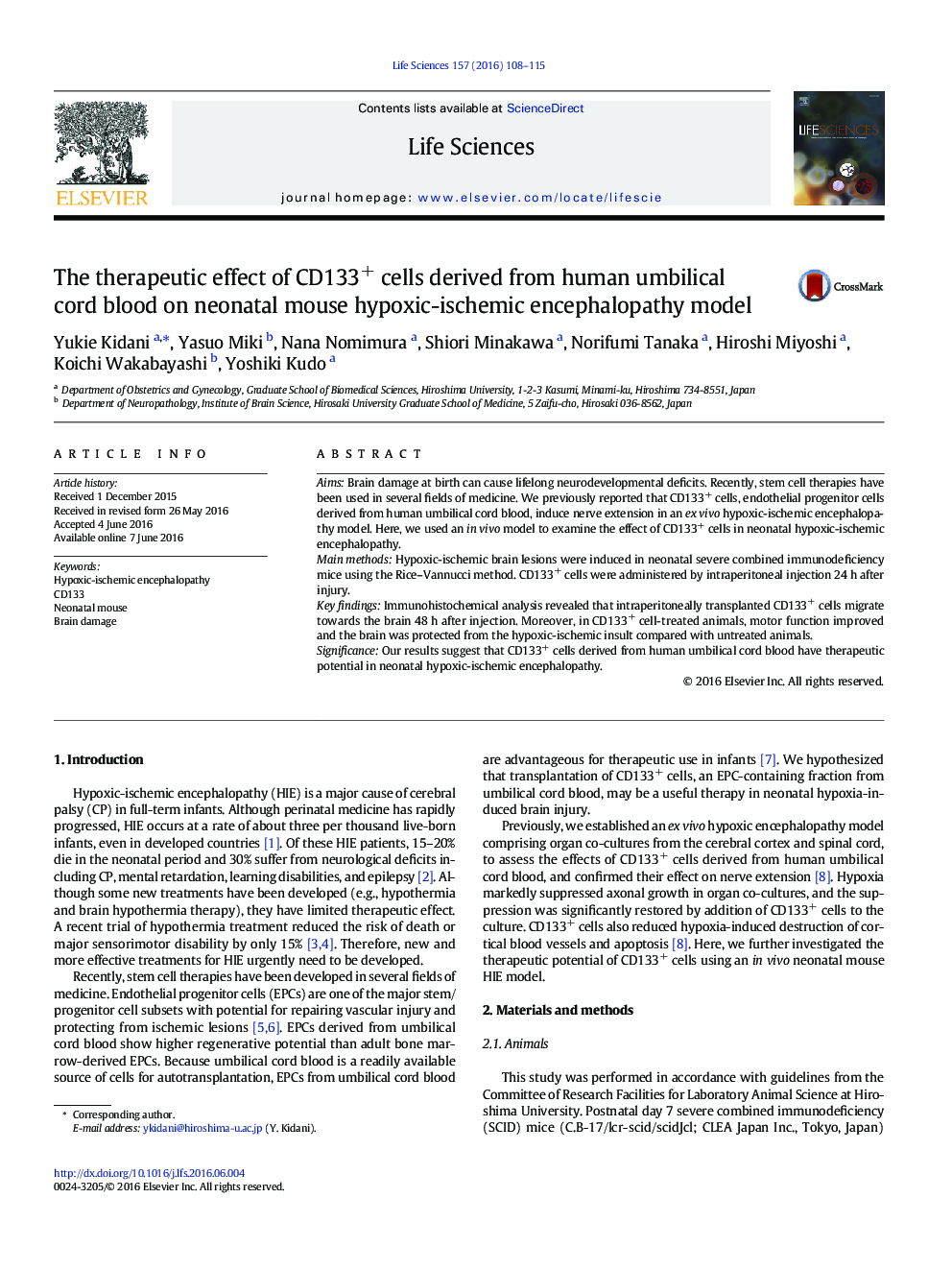| Article ID | Journal | Published Year | Pages | File Type |
|---|---|---|---|---|
| 2550427 | Life Sciences | 2016 | 8 Pages |
AimsBrain damage at birth can cause lifelong neurodevelopmental deficits. Recently, stem cell therapies have been used in several fields of medicine. We previously reported that CD133+ cells, endothelial progenitor cells derived from human umbilical cord blood, induce nerve extension in an ex vivo hypoxic-ischemic encephalopathy model. Here, we used an in vivo model to examine the effect of CD133+ cells in neonatal hypoxic-ischemic encephalopathy.Main methodsHypoxic-ischemic brain lesions were induced in neonatal severe combined immunodeficiency mice using the Rice–Vannucci method. CD133+ cells were administered by intraperitoneal injection 24 h after injury.Key findingsImmunohistochemical analysis revealed that intraperitoneally transplanted CD133+ cells migrate towards the brain 48 h after injection. Moreover, in CD133+ cell-treated animals, motor function improved and the brain was protected from the hypoxic-ischemic insult compared with untreated animals.SignificanceOur results suggest that CD133+ cells derived from human umbilical cord blood have therapeutic potential in neonatal hypoxic-ischemic encephalopathy.
